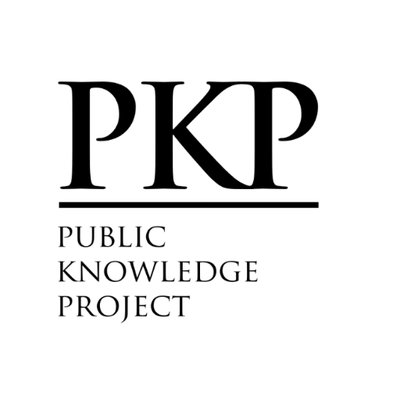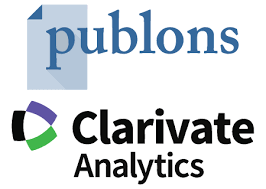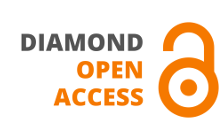Optimisation des services bancaires des agents de point de vente pour des économies rurales inclusives
Risques et interventions stratégiques
DOI :
https://doi.org/10.59051/joaf.v15i2.835Mots-clés :
Agent banking, criminality, financial inclusions, entrepreneurship, rural economy, Afrique du SudRésumé
Objectif : Cet article examine l'impact de la banque d'agents via Point de Vente (PoS) sur la simplification des transactions numériques et en espèces, en mettant l'accent sur son potentiel à atténuer l'exclusion financière dans les communautés rurales sud-africaines, tout en abordant les défis inhérents.
Méthodologie : Une méthodologie de recherche qualitative exploratoire basée sur une étude de cas a été adoptée, utilisant une approche de recherche-action participative dirigée par la communauté. En s'appuyant sur la théorie de l'activité routinière, cette étude fournit une compréhension approfondie des risques criminels potentiels liés à la mise en œuvre du modèle.
Résultats : En Afrique du Sud, la banque PoS présente un potentiel considérable pour stimuler l'entrepreneuriat et améliorer les moyens de subsistance dans les zones rurales mal desservies. Toutefois, le succès de ce modèle est entravé par des risques de cybersécurité, la fraude, des problèmes de crédibilité des agents et des menaces à la sécurité physique, telles que les vols. Les interventions possibles incluent le renforcement de l'enregistrement des agents, la sensibilisation du public, l'amélioration des protocoles de sécurité numérique et le renforcement des cadres réglementaires et de l'application de la loi.
Originalité / pertinence : La recherche met en lumière l'importance de la banque PoS pour surmonter l'exclusion financière et favoriser le développement communautaire en Afrique. Elle souligne la nécessité d'une approche multifactorielle pour atténuer les risques associés, combinant une meilleure surveillance réglementaire, l'application de la loi, l'éducation publique et la sécurité technologique. Ces mesures sont essentielles pour garantir une croissance sûre et durable de la banque PoS, en favorisant l'inclusion économique et la résilience des communautés vulnérables. Une exploration plus approfondie fournissant des mesures d'intervention face aux défis de mise en œuvre est impérative pour favoriser l'intégration et la durabilité de ce modèle.
Téléchargements
Références
Adeoti, O. O. (2013). Challenges to the efficient use of Point of Sale (PoS) terminals in Nigeria. African Journal of Business Management, 7(28), 2801-2806. https://doi.org/10.5897/AJBM12.1129
Afzal, M., Meraj, M., Kaur, M., & Shamim Ansari, M. (2024). How does cybersecurity awareness help in achieving digital financial inclusion in rural India under escalating cyber fraud scenario? Journal of Cyber Security Technology, 1-39.
Akande, J. O., Hosu, Y. S., Kabiti, H., Ndhleve, S., & Garidzirai, R. (2023). Financial literacy and inclusion for rural agrarian change and sustainable livelihood in the Eastern Cape, South Africa. Heliyon, 9(6), 1-12. https://doi.org/10.1016/j.heliyon.2023.e16330
Akhtar, S., Sheorey, P. A., Bhattacharya, S., & VV, A. K. (2021). Cyber security solutions for businesses in financial services: Challenges, opportunities, and the way forward. International Journal of Business Intelligence Research (IJBIR), 12(1), 82-97.
Alzamel, H. A., Alshabanah, M., & Alsmadi, M. (2019). Point of Sale (POS) Network with embedded fingerprint biometric authentication. International Journal of Scientific Research in Science and Technology (IJSRST), 6(5), 212-223. https://doi.org/10.32628/IJSRST119659
Atkins, S., & Lawson, C. (2021). Cooperation amidst competition: Cybersecurity partnership in the US financial services sector. Journal of Cybersecurity, 7(1), 1-11. https://doi.org/10.1093/cybsec/tyab024
Attoukou, M., & Nchare, K. (2022). Financial exclusion and poverty reduction in Benin. Asian Journal of Economics and Empirical Research, 9(2), 121-131.
Bello, O. A., Ogundipe, A., Mohammed, D., Adebola, F., & Alonge, O. A. (2023). AI-driven approaches for real-time fraud detection in US financial transactions: Challenges and opportunities. European Journal of Computer Science and Information Technology, 11(6), 84-102.
Berg, T., Burg, V., Gombović, A., & Puri, M. (2020). On the rise of fintechs: Credit scoring using digital footprints. The Review of Financial Studies, 33(7), 2845-2897.
Button, M., & Cross, C. (2017). Cyber frauds, scams, and their victims. Routledge.
Chitimira, H., & Magau, P. (2022). A legal conspectus of some role-players in the development of financial education in South Africa. EIRP Proceedings, 17(1), 360-375.
Cohen, L. E., & Felson, M. (1979). Social change and crime rate trends: A routine activity approach. American Sociological Review, 44(4), 588-608.
Dal Pozzolo, A., Boracchi, G., Caelen, O., Alippi, C., & Bontempi, G. (2017). Credit card fraud detection: A realistic modeling and a novel learning strategy. IEEE Transactions on Neural Networks and Learning Systems, 29(8), 3784-3797.
Devi, A. (2023). What is financial exclusion? A review. Review on Islamic Accounting, 3(2). https://doi.org/10.58968/ria.v3i2.365
Engels, C., Kumar, K., & Philip, D. (2021). Financial literacy and fraud detection. In Financial Literacy and Responsible Finance in the FinTech Era (pp. 124-146). Routledge.
Fourchard, L., & Azeez, A. K. (2023). The 2023 cashless election in Nigeria: The politics of withdrawing money. African Affairs, 1-17. https://doi.org/10.1093/afraf/adad019
Gennaioli, N., Shleifer, A., & Vishny, R. (2015). Money doctors. The Journal of Finance, 70(1), 91-114.
Hall, L., Campbell, R., Gross, E., & Lichtenberg, P. A. (2022). The impact of financial coaching on older adult victims of financial exploitation: A quasi-experimental research study. Financial Counseling and Planning: The Journal of the Association for Financial Counseling and Planning Education, 33(1), 66–78.
Holtfreter, K., Reisig, M. D., & Pratt, T. C. (2008). Low self-control, routine activities, and fraud victimization. Criminology, 46(1), 189-220.
Iwara, I. O. (2024). Catalysing financial inclusion in South Africa's rural landscape: A theoretical discourse of PoS business model. e-BANGI Journal, 21(2), 448-459. 10.17576/ebangi.2024.2102.37
Kshetri, N. (2019). Cybercrime and cybersecurity in Africa. Journal of Global Information Technology Management, 22(2), 77-81. https://doi.org/10.1080/1097198X.2019.1603527
Lestariningati, S. I. (2018, August). Mobile point of sale design and implementation. In IOP Conference Series: Materials Science and Engineering (Vol. 407, No. 1, p. 012094). IOP Publishing.
Levi, M. (2015). Money for crime and money from crime: Financing crime and laundering crime proceeds. European Journal on Criminal Policy and Research, 21(2), 275-297.
Levi, M., & Reuter, P. (2006). Money laundering. Crime and Justice, 34(1), 289-375.
Miya, Z. (2022, October 13). Overcoming financial exclusion in South Africa. TechFinancials. https://techfinancials.co.za/2022/10/13/overcoming-financial-exclusion-in-south-africa/
Mohammed, D. (2015). Cybersecurity compliance in the financial sector. Journal of Internet Banking and Commerce, 20(1), 1-11.
Mokobongo, F. J. J. Y., Mballa, N. U. C., Koyongozo, A. D., Dacko, G., & Gonessa, M. E. (2022). Financial exclusion in Central African Republic.
Mpofu, F. Y., & Mhlanga, D. (2022). Digital financial inclusion, digital financial services tax, and financial inclusion in the fourth industrial revolution era in Africa. Economies, 10(8), 1-22. https://doi.org/10.3390/economies10080184
Mtyapi, S. (2021). Investigating financial inclusion in rural households: A South African case (Doctoral dissertation, University of the Western Cape).
Náñez Alonso, S. L., Jorge-Vazquez, J., Echarte Fernández, M. Á., Kolegowicz, K., & Szymla, W. (2022). Financial exclusion in rural and urban contexts in Poland: A threat to achieving SDG eight? Land, 11(539), 1-21. https://doi.org/10.3390/ land1104053
Newman, G. R., & Clarke, R. V. (2003). Superhighway robbery (1st ed.). Willan. https://doi.org/10.4324/9781843924876
Njoku, J. (2022, March 28). The ultimate guide on how to start a PoS business in Nigeria. DockaysWorld. https://www.dockaysworld.com.ng/how-to-start-a-pos-business-in-nigeria/
Okoye, C. C., Nwankwo, E. E., Usman, F. O., Mhlongo, N. Z., Odeyemi, O., & Ike, C. U. (2024). Securing financial data storage: A review of cybersecurity challenges and solutions. International Journal of Science and Research Archive, 11(1), 1968-1983.
Olarewaju, B. (2023). How to start a PoS machine business in Nigeria. Studentship. https://studentship.com.ng/start-pos-business-in-nigeria/?expand_article=1#google_vignette
Omojola, O., Adebogun, O., & Audu, S. (2022). Financial inclusion and tax revenue in Nigeria. Research Journal of Business and Economic Management, 5(2), 32-37. https://doi.org/10.31248/RJBEM2022.084
Phelan, A., O'Donnell, D., & McCarthy, S. (2023). Financial abuse of older people by third parties in banking institutions: A qualitative exploration. Ageing & Society, 43(9), 2135-2156.
Shaw, J. M. (2018). Compliance challenges in the world of elder financial exploitation. Journal of Financial Compliance, 2(2), 155-164.
Simatele, M., & Maciko, L. (2022). Financial inclusion in rural South Africa: A qualitative approach. Journal of Risk and Financial Management, 15(376), 2-22. https://doi.org/10.3390/jrfm15090376
Somba, S. K. (2014). Real-time multi-agent-based fraud detection tool for banking institutions (Doctoral dissertation, University of Nairobi).
South African Banking Risk Information Centre (SABRIC). (2020). Annual crime statistics report. Retrieved from https://www.sabric.co.za/media-and-news/press-releases/sabric-annual-crime-stats-2020/
South African Police Service. (2023). Crime statistics report. Retrieved from https://www.saps.gov.za/services/downloads/2022-2023-Annual-Crime-Statistics-Report.pdf
Stamler, R., Marschdorf, H., & Possamai, M. (2014). Fraud prevention and detection. Routledge.
Tran, H. T. T., & Le, H. T. T. (2021). The impact of financial inclusion on poverty reduction. Asian Journal of Law and Economics, 12(1), 95-119.
Statista. (2014). Total number of POS terminals reported in South Africa from 2012 to 2022. Statista. https://www.statista.com/statistics/1316919/pos-terminal-count-in-south-africa/
Téléchargements
Publié
Numéro
Rubrique
Licence
© Ishmael Obaeko IWARA 2025

Cette œuvre est sous licence Creative Commons Attribution - Pas d'Utilisation Commerciale - Pas de Modification 4.0 International.
Les auteurs qui publient dans cette revue acceptent les termes suivants :
- Les auteurs conservent le droit d'auteur et accordent à la revue le droit de première publication, l'ouvrage étant alors disponible simultanément, sous la licence Licence d’attribution Creative Commons permettant à d'autres de partager l'ouvrage tout en en reconnaissant la paternité et la publication initiale dans cette revue.
- Les auteurs peuvent conclure des ententes contractuelles additionnelles et séparées pour la diffusion non exclusive de la version imprimée de l'ouvrage par la revue (par ex., le dépôt institutionnel ou la publication dans un livre), accompagné d'une mention reconnaissant sa publication initiale dans cette revue.
- Les auteurs ont le droit et sont encouragés à publier leur ouvrage en ligne (par ex., dans un dépôt institutionnel ou sur le site Web d'une institution) avant et pendant le processus de soumission, car cela peut mener à des échanges fructueux ainsi qu'à un nombre plus important, plus rapidement, de références à l’ouvrage publié (Voir The Effect of Open Access).






















